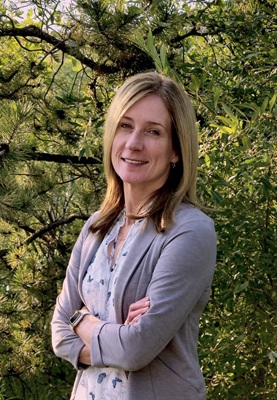TALK 29: Fire Analytics
Wildfire in Los Angeles is a current topic. Dr. Beverly will describe her research and insights into wildfires.
Speaker: Dr. Jen Beverly, Associate Professor in the Department of Renewable Resources at the University of Alberta
This is part of the TALK series organized by Carl Zanon for Vancouver Section LMAG. All Life Members and anyone else interested is welcome to attend. Times are Vancouver, 10:00 AM PST is 1:00 PM EST.
Registration is optional, but we want to know who to expect.
Future Talks planned:
2025-Mar-22 TALK #30 Dr. Sen Update AI Security
2025-Apr-26 TALK #31 Dr. Jaymie Matthews Astronomy Revisited
2025-May-24 TALK #32 Murray MacDonald Argentina visit – breath of IEEE And Milestone Process
2025-Jun-21 TALK #33 S. Douglas Cromey Electric Ferry
Date and Time
Location
Hosts
Registration
- Date: 15 Feb 2025
- Time: 09:45 AM to 11:00 AM
- All times are (UTC-08:00) Pacific Time (US & Canada)
-
 Add Event to Calendar
Add Event to Calendar
- Starts 18 January 2025 12:00 AM
- Ends 15 February 2025 12:01 PM
- All times are (UTC-08:00) Pacific Time (US & Canada)
- No Admission Charge
Speakers
Dr. Jen Beverly
Fire Analytics

Biography:
Dr. Beverly is an Associate Professor in the Department of Renewable Resources at the University of Alberta and has been studying wildfires for over 25 years. She holds MSc and PhD degrees from the Faculty of Forestry, University of Toronto, and an Honours BES from the University of Waterloo. She is a fire behaviour specialist, a former helitack crew leader (Ontario Fire Ranger), and a former federal government research scientist.
Dr. Beverly’s mission is to develop practical, insightful, and accessible tools and approaches for decision makers working to ensure social and ecological systems thrive in fire prone environments. To this end, she applies a range of methods, including statistical modeling, simulation modeling and spatial analysis, to inform complex decisions. Her fire research studies have addressed a wide range of topics including post-fire ecological effects, fire behavior prediction, fuels measurement, fire-climate interactions, wildfire evacuations, escaped fires, values-at-risk mapping, and strategic fire risk assessment at both community and landscape scales.
Agenda
9:45 AM Zoom opens
10:00 AM Welcome and speaker introduction
10:05 AM Speaker
